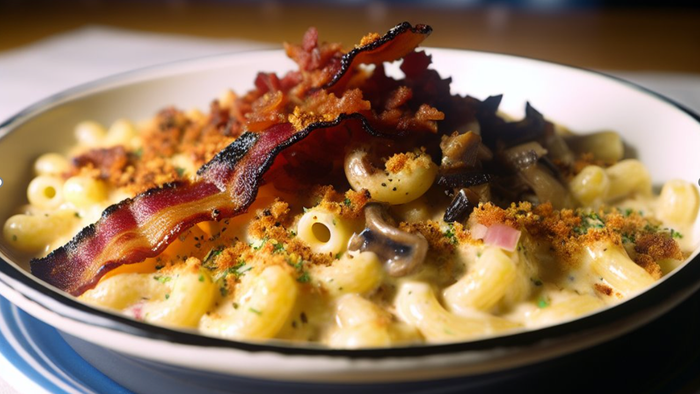The Role Of A Sommelier ExplainedThe Role Of A Sommelier Explained
Hiring a sommelier for an event can elevate it to new heights. Find out what these wine experts offer and how they can benefit your catering company
April 30, 2024

If you host events or are in the catering industry, chances are you’ve hired a sommelier before—or are curious about doing so in the future.
These professional wine experts and servers can add immeasurable value to a guest’s dining experience and often make the process of menu pairing and event organization easier, too.
But despite the art of sommeliership dating back as early as the 1800s, much of what these wine maestros do is still a mystery to many within the food service industry.
The role of a sommelier extends far beyond pouring wine and chatting to tasters at the table. It also entails crucial preparation, research, and expertise that regular servers simply cannot provide. Today, we’ll discuss the art of being a sommelier and how hiring one can elevate every event.
Sommeliers summarized
A sommelier is a wine expert trained in the art of storing, managing, and serving wine.
Sommeliers play a more wine-focused role than regular servers or waiters, who may have general knowledge about the food and wine they serve. These wine experts are specially trained in the history, processes, types, and traditions of wine in all its complex variety and value.
In addition to possessing a comprehensive and thorough knowledge of wine, sommeliers are experts in the nuanced field of wine service.
A good sommelier will have been trained to present, pour, communicate, and handle all aspects of wine tasting and service so that diners, guests, and customers of all kinds are delivered the most professional and value-enriched experience possible.
Although it is not always the case, high-level sommeliers may also bear the title of wine cellarist. I.e., someone who is responsible for a restaurant’s or catering company’s entire wine cellar.
Five key responsibilities and characteristics of a great wine sommelier
Sommeliers are more than just wine servers; they are wine connoisseurs. Their skills include a wide range of service and wine-related expertise, allowing them to provide guests with the most professional and comprehensive service possible.
But if you’d like to see the exact skills and responsibilities of a sommelier broken down in a more straightforward manner, take a look at this list:
1. Customer communication
Wine is different from your average drink. It has a complex history and fermentation techniques to consider, many of which customers or guests are curious about when trying for the first time. A sommelier accommodates this need.
By presenting and communicating each individual bottle’s history and flavor profile, sommeliers explain the value of wine while offering useful insights into how to taste and experience it properly.
2. Inventory management
Many sommeliers are responsible for the research, ordering, stock take, and general management of a restaurant or catering company’s cellar.
This is especially beneficial if you are a large company or one that expects to be stationed at one location for the foreseeable future. But inventory management is always needed, and a well-trained sommelier should be able to provide it.
3. Wine and food knowledge
One of a sommelier's most important skills is extensive knowledge about wine. From the way the grapes are harvested to the various fermentation techniques to the anecdotal stories about how each bottle began—sommeliers should have an abundance of relevant and insightful knowledge to share with guests.
This broad scope of wine knowledge also allows them to make informed wine and food pairings as well as recommendations to both caterers and guests who want to know more.
4. Creating and updating wine lists
Quality, regularly updated wine lists are crucial for any catering or food business that wants to stay relevant in the dining scene.
Trained sommeliers are often tasked with creating and refreshing a company’s wine list as per seasonal changes and trends. They know what’s trending in the wine world and what wine clubs, farms, and other retailers are focusing on at a particular time. They use this industry knowledge to ensure they recommend wine that suits current preferences.
5. Conducting the wine service
Proper wine tasting and drinking require an art and finesse that surpasses that of regular beverage consumption, and it’s up to the sommelier to ensure that they are conducted properly.
Sommeliers will take your guests on a journey from start to finish, providing context, structure, and opulence to the dining experience. It’s a service best conducted by experts for optimum results.
Serve up an enhanced event experience with sommeliers
Hiring a professional sommelier can be a game-changing decision if you are an event organizer or caterer who serves wine at your events.
It means smoother service operations, a significantly elevated wine list, and a much more memorable and high value experience for your guests and customers. This can also help you to tap into a more high-end market and grow your business sustainably.



.png?width=700&auto=webp&quality=80&disable=upscale)

.png?width=700&auto=webp&quality=80&disable=upscale)

